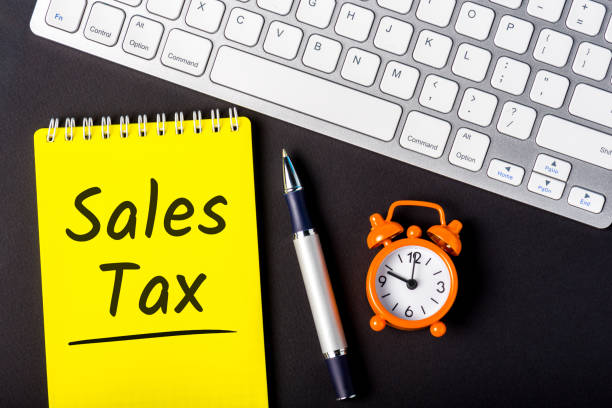The Ultimate Guide: Understanding Sales Tax for Online Sellers in 2025 – 15 Essential Facts You Must Know
Understanding the Basics of Sales Tax Nexus
The foundation of sales tax compliance for online sellers rests on understanding nexus – the connection between your business and a state that creates a tax obligation. Let’s dive deep into the two primary types of nexus and how they affect your e-commerce business.
What is Physical Nexus?
Physical nexus is established when your business has a tangible presence in a state. This presence can manifest through:
- Physical office locations
- Employees or remote workers
- Inventory storage (including FBA warehouses)
- Company vehicles
- Leased properties
Having any of these elements in a state creates an immediate obligation to collect and remit sales tax, regardless of your sales volume.
Economic Nexus Explained
Economic nexus represents a newer concept in sales tax legislation, introduced in June 2018. It’s based on your sales volume or transaction count in a state, rather than physical presence. The general thresholds are:
- $100,000 in sales revenue, OR
- 200 separate transactions
These thresholds typically reset each calendar year, providing businesses with a fresh start annually.
Critical Steps for Sales Tax Compliance
Step 1: Identifying Your Physical Presence
Start by mapping out where your business has physical connections:
- List all states where you have employees
- Document inventory storage locations
- Note any physical assets or leased properties
Step 2: Monitoring Sales Volumes
Implement a quarterly review system to:
- Track sales by state
- Count transactions per jurisdiction
- Compare against economic nexus thresholds
Step 3: Product Taxability Assessment
Before registering in any state, determine:
- If your products are taxable in that jurisdiction
- Whether any exemptions apply
- Special tax categories that might affect your products
Marketplace Facilitator Laws and Their Impact
Understanding Marketplace Facilitators
Marketplace facilitators include platforms like:
- Amazon
- Shopify
- Walmart
- Etsy
- eBay
These platforms handle sales tax collection and remittance for sellers, significantly reducing compliance burdens.
Benefits of Marketplace Sales
When selling through marketplace facilitators:
- The platform handles tax collection
- Reduced compliance requirements
- Automatic tax remittance
Registration and Compliance Strategies
When to Register
Register for sales tax when:
- You have physical nexus
- You exceed economic nexus thresholds
- Your products are taxable
- You’re selling outside marketplace facilitators
Compliance Best Practices
Maintain compliance by:
- Regular sales monitoring
- Keeping accurate records
- Understanding filing frequencies
- Staying updated on threshold changes
Special Considerations for Growing Businesses
Multi-State Operations
As your business expands:
- Monitor new state requirements
- Understand varying tax rates
- Track changing regulations
Technology Solutions
Implement appropriate tools for:
- Sales tracking
- Tax calculation
- Filing automation
- Record keeping
Frequently Asked Questions
Q1: When should I start collecting sales tax?
A: Start collecting sales tax as soon as you establish physical nexus in a state or exceed economic nexus thresholds, provided your products are taxable and you’re selling through your own platform.
Q2: Do I need to collect sales tax if I only sell through Amazon?
A: If you exclusively sell through Amazon or other marketplace facilitators, they will handle sales tax collection and remittance on your behalf.
Q3: How often do I need to file sales tax returns?
A: Filing frequency varies by state and typically depends on your sales volume. It can be monthly, quarterly, or annually.
Q4: What happens if I exceed the economic nexus threshold mid-year?
A: You must begin collecting sales tax on future sales once you exceed the threshold. Previous sales are not subject to tax collection.
Q5: Do I need to track sales if I’m below the threshold?
A: Yes, regular monitoring is essential to ensure compliance when you reach thresholds and to maintain accurate records.
Q6: Can I have both physical and economic nexus in the same state?
A: Yes, you can have both types of nexus in a state, but physical nexus creates immediate tax obligations regardless of sales volume.
Conclusion
Understanding and managing sales tax obligations is crucial for online business success. Start with identifying your physical presence, monitor your sales volumes, and ensure compliance with marketplace facilitator laws. Regular review and proper documentation will help maintain compliance and avoid potential issues. Please contact us to alleviate all your tax reporting concerns .

